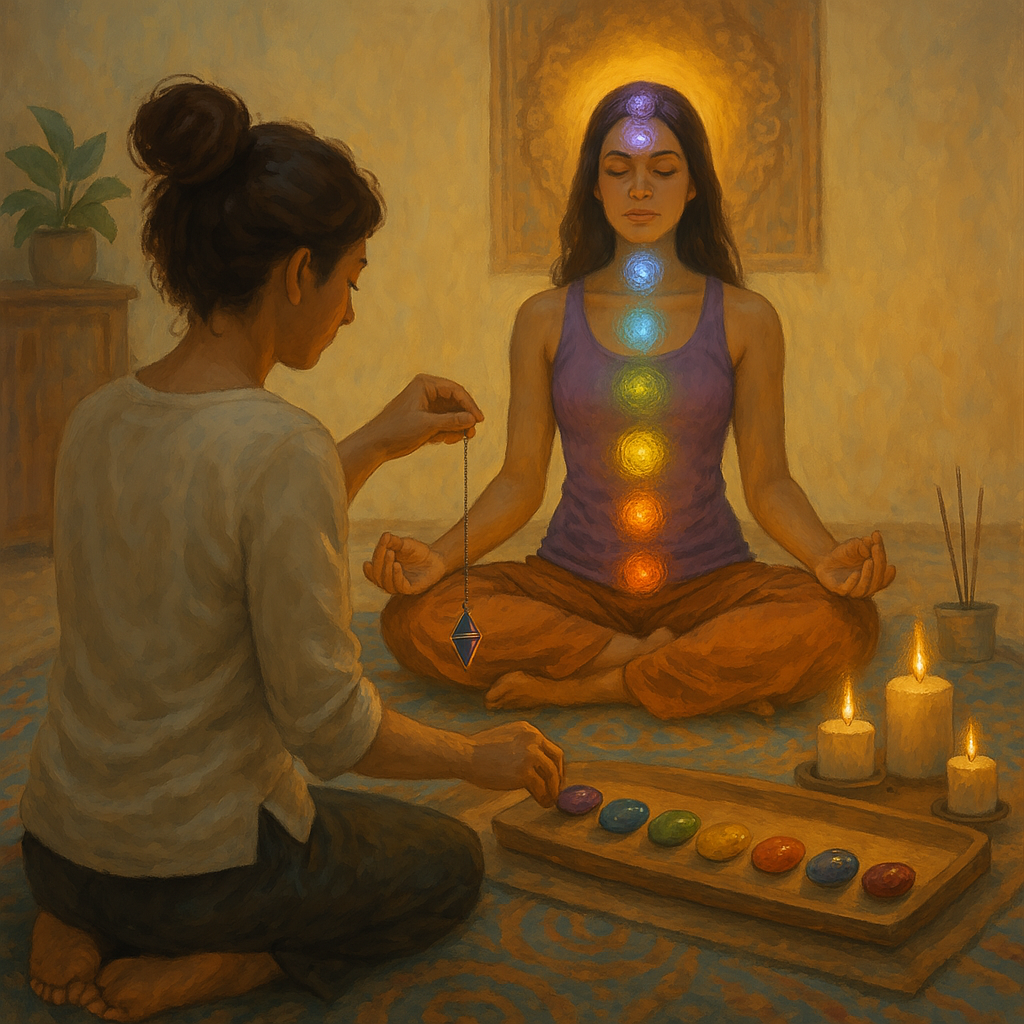
Ever felt like you’re doing everything right but still something feels… off? That could be your chakras trying to get your attention. Let’s walk through how you can prep yourself to get the absolute best out of a chakra balancing session—mentally, physically, and spiritually.
Introduction to Chakra Balancing
What is Chakra Balancing?
Chakra balancing is all about aligning your body’s energy centers—think of it like an energetic tune-up. These seven centers, known as chakras, each correspond to different parts of your physical and emotional being. When they’re misaligned or blocked, you may feel off—anxious, tired, moody, or even physically unwell.
Why Chakra Health Matters
Balanced chakras = smoother energy flow = better physical, emotional, and spiritual wellness. When your chakras are in harmony, you feel grounded, confident, creative, loving, expressive, intuitive, and spiritually connected.
Understanding the Seven Chakras
Before heading into a session, it helps to know what you’re working with:
Root Chakra (Muladhara)
Location: Base of the spine
Represents: Security, grounding, survival
Sacral Chakra (Svadhisthana)
Location: Lower abdomen
Represents: Creativity, pleasure, sexuality
Solar Plexus Chakra (Manipura)
Location: Upper abdomen
Represents: Confidence, personal power
Heart Chakra (Anahata)
Location: Center of chest
Represents: Love, compassion, forgiveness
Throat Chakra (Vishuddha)
Location: Throat
Represents: Communication, truth
Third Eye Chakra (Ajna)
Location: Between the eyebrows
Represents: Intuition, insight, imagination
Crown Chakra (Sahasrara)
Location: Top of the head
Represents: Spirituality, connection to higher self
Benefits of a Chakra Balancing Session
Emotional Clarity
Feel like your thoughts have been all over the place? Chakra work brings clarity and emotional balance.
Physical Relaxation
People often leave a session feeling deeply relaxed—like a massage for your soul.
Spiritual Alignment
It’s a powerful way to connect to your higher self or even just feel more centered in your everyday life.
Choosing the Right Chakra Practitioner
Qualifications to Look For
Look for someone certified in energy healing, reiki, sound therapy, or chakra alignment. Check reviews. Ask questions. Trust your gut.
Types of Techniques They Might Use
This could include sound bowls, reiki, guided meditation, crystals, essential oils, or even pendulums. Every practitioner has their own vibe.
How to Mentally Prepare for the Session
Setting an Intention
Before you go, ask yourself: What do I want to release or receive? Your intention sets the tone for the whole session.
Releasing Expectations
Don’t go in expecting fireworks. Go in open to whatever shows up—even if that’s just feeling more chill.
Practicing Mindfulness Beforehand
Spend 5-10 minutes breathing deeply or doing a simple meditation. Calm mind = more powerful session.
Physical Preparation Tips
Hydration is Key
Drink water before and after. Energy flows better when your body’s not dehydrated.
Eating Light Before the Session
Avoid heavy meals—your body should be focused on healing, not digesting lasagna.
What to Wear for Comfort and Energy Flow
Loose, breathable clothes. You’re lying down or sitting for a while—tight jeans aren’t the vibe.
What to Bring With You
Crystals and Stones
Bring your faves—rose quartz, amethyst, black tourmaline. Your practitioner might even suggest specific ones.
Journal for Reflections
You may want to jot down thoughts, sensations, or messages that come through after your session.
Water Bottle and a Calm Mind
Simple, but essential.
Creating the Right Mindset During the Session
Be Open and Receptive
Try not to resist. Let the energy flow. It’s like a river—you don’t control it, you float with it.
Breathe Through Blockages
If something feels intense, breathe. Energy is moving, and that’s a good thing.
Letting Go of Judgment
You might cry. You might laugh. You might feel nothing. All of it is valid.
Post-Session Self-Care
Journaling Your Experience
Take 10 minutes afterward to capture any thoughts, visions, or physical sensations.
Rest and Reflect
Don’t jump into work or errands. Chill. Nap. Be with yourself.
Grounding Techniques
Eat grounding foods like root veggies, walk barefoot on grass, or do a grounding meditation.
How Often Should You Do Chakra Balancing?
Signs You Need Another Session
Feeling stuck, overly emotional, anxious, or just energetically “off” can be signs it’s time.
Building a Consistent Practice
Some people do it monthly, others seasonally. Tune in with what your body and soul are telling you.
Conclusion
Getting ready for a chakra balancing session isn’t about being perfect—it’s about being present. The more you prepare—mind, body, and spirit—the more profound the experience. Whether it’s your first session or your fiftieth, showing up with intention and openness can lead to transformation on levels you didn’t know existed.
FAQs
Most sessions last between 45 minutes to 90 minutes, depending on the practitioner and technique.
Everyone’s different. You might feel warmth, tingling, emotions bubbling up—or just deep relaxation.
Nope. It’s more about energy and self-awareness. People from all backgrounds use it for healing and growth.
Belief helps, but it’s not required. Just being open-minded is enough to feel the effects.




